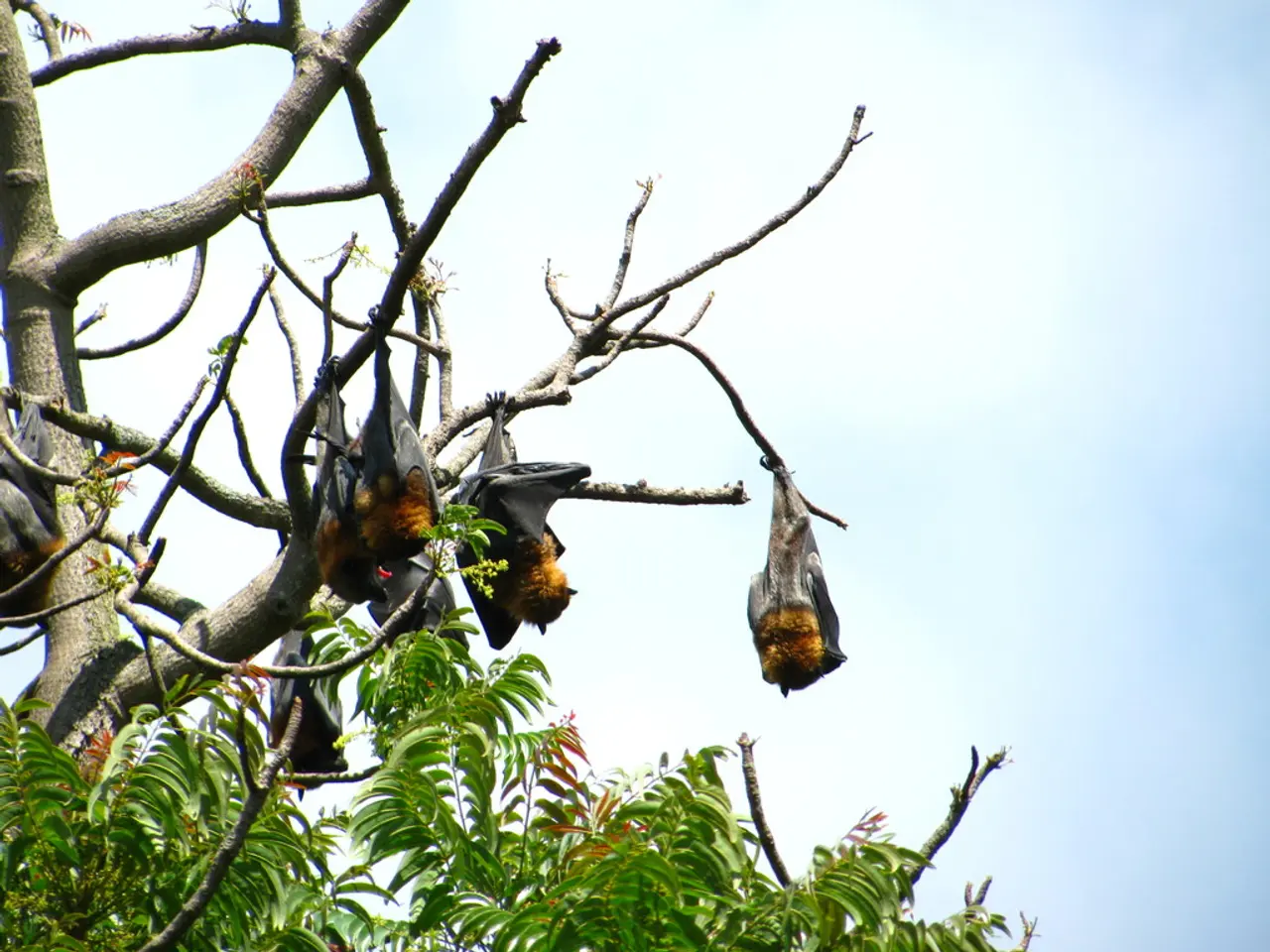Unveiling the extraordinary feats of bats in the animal kingdom as the true superheroes
Bats, often misunderstood creatures of the night, are a fascinating group of animals with a variety of unique adaptations that make them truly extraordinary.
Unmatched Navigation and Hunting Abilities
Bats' success and superior abilities can be attributed to their unique adaptations. For instance, echolocation, a way of perceiving the environment by bouncing high-frequency sounds off objects and listening for their echoes, allows them to navigate and hunt effectively in various environments. In brighter conditions, bats are able to utilise both acoustic and visual information during hunting.
A Longevity Mystery Unveiled
The oldest bat ever recorded was a tiny Brandt's bat in Russia, which weighed less than a quarter of an ounce, yet lived at least 41 years. This longevity mystery has made bats a model for healthy living and longevity.
The Fastest Flyers on Earth
Bats also hold the record for the fastest horizontal flight on Earth. The humble Mexican free-tailed bat can reach speeds of up to a hundred miles per hour.
Pollinators and Pest Controllers
Bats play a crucial role in our ecosystem. More than 1,400 bat species live around the world, except in Antarctica and a few remote islands. At least 549 plant species are either pollinated or dispersed by bats, including many popular food crops like bananas, mangos, guavas, and cacao. Bats are also responsible for pollinating the saguaro cactus, a well-known symbol of the Sonoran Desert.
In addition to their pollination efforts, bats save U.S. farmers about $23 billion per year by reducing crop damage and limiting the need for pesticides through eating insects. The lesser long-nosed bat is critical for the pollination of the blue agave cactus, from which tequila is made.
An Evolutionary Arms Race with Viruses
A recent analysis of six bat species' genomes revealed a long-standing evolutionary arms race between bats and viruses. Bats have developed a built-in sonar system for finding prey and have genes involved in immunity and inflammation that periodically changed over time, likely in response to infection by viruses.
Viral Resistance and Cautionary Tales
Bats have a unique resistance to viruses, such as rabies and Ebola, without getting sick. However, bats are the suspected reservoir for several viruses that can infect humans, such as the Nipah virus. Wild bats carrying coronaviruses do not pose a threat to humans if left undisturbed.
The Remarkable Rodrigo Medellín's Perspective
Rodrigo Medellín, an ecologist, states that bats really do have superpowers. From their echolocation abilities to their role as pollinators and pest controllers, bats are indeed nature's superheroes. Their unique adaptations and resilience serve as a reminder of the incredible diversity and complexity of life on our planet.








